The top surgeon who harmed patients for years
- Published
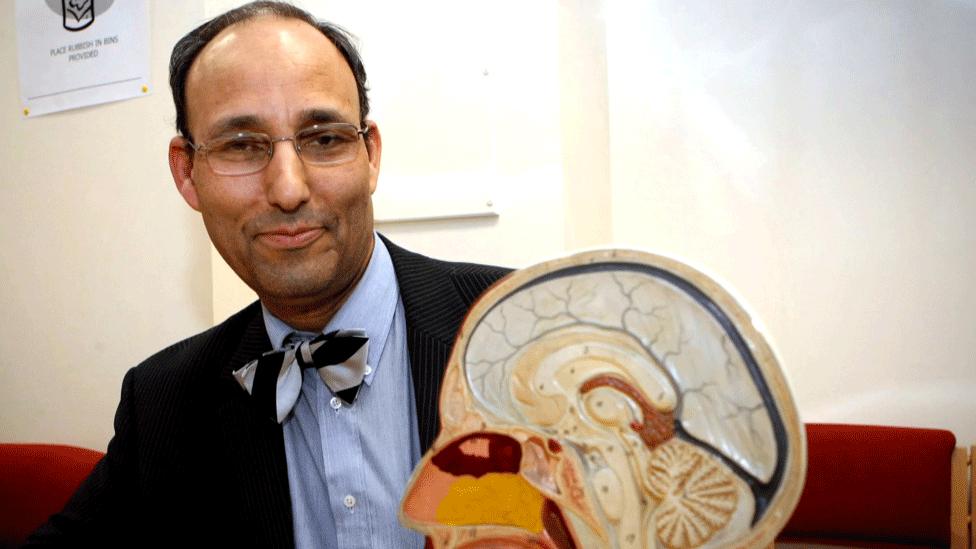
Sam Eljamel was the head of the neurosurgery department in Ninewells Hospital in Dundee
A top surgeon harmed patients for years and the health board did not have the systems in place to pick up on his mistakes, a BBC investigation has found.
BBC Scotland's Disclosure team saw evidence that dozens of people claimed to have been harmed by Sam Eljamel, the former head of neurosurgery at NHS Tayside.
In one case he removed the wrong part of a patient's body.
NHS Tayside said it had listened to patients, changed its practices and made improvements as a result.
However, the BBC investigation found Mr Eljamel was allowed to continue operating even after an external investigation found he was injuring patients.
Mr Eljamel's lawyer said his client had no comment to make.

Who is Sam Eljamel?
He was the head of the neurosurgery department in Ninewells - one of just four specialist centres in Scotland.
The surgeon was an adviser to the Scottish government and also worked at Fernbrae private hospital in Dundee.
We know that he qualified in Tripoli in Libya before moving to Liverpool.
From there he went to Dublin where Mr Eljamel worked as a senior neurosurgical registrar.
He then went to Connecticut where he claims he completed a fellowship at Hartford Hospital.
Although when we contacted them they said they had no record of this.
He also claims he was a visiting professor at the Universities of Connecticut and San Diego but when BBC Disclosure contacted them the universities said this was not the case.
The brain surgery patient
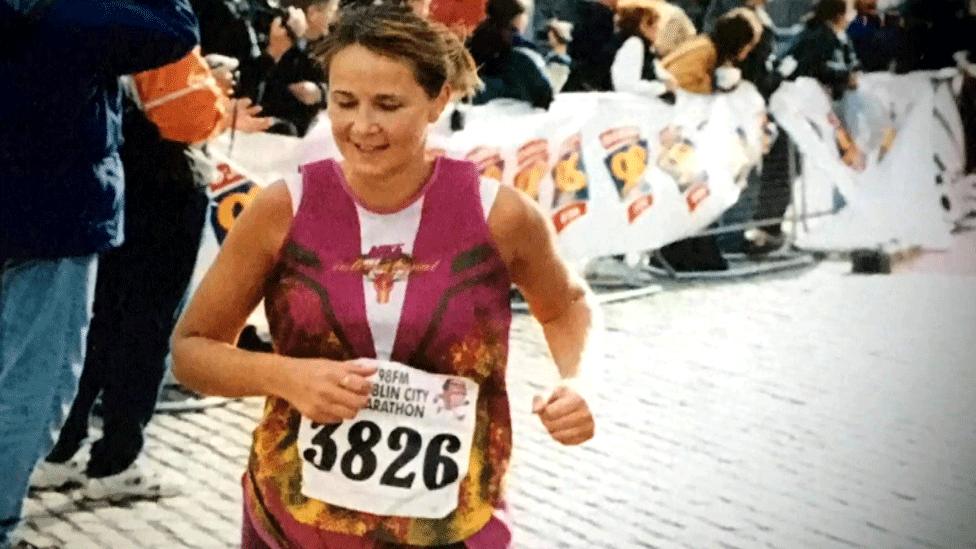
Marathon running was Jules Rose's passion before she became ill and needed surgery
Jules Rose was a keen marathon runner until she was told in 2013 that she had a brain tumour.
She was nervous about having surgery but reassured to discover it would be carried out by the head of department.
After the August procedure Ms Rose said Mr Eljamel told her the benign growth behind her eye was "99% removed".
But a few months later the surgeon informed her he would have to do the operation again and on 9 December the second craniotomy took place.
Tear gland removed instead of tumour
After asking for her medical records, Ms Rose discovered that in the first operation Mr Eljamel had removed the wrong part of her body - instead of the tumour he had taken out her tear gland.
'I thought I could trust my brain surgeon'
She sued the hospital and received compensation.
But even then no-one told her that since June 2013 her surgeon had been under investigation and under "supervision".
Following the operation she suffers pain and constant dry eye problems.
"It's atrocious," she says.
"For NHS Tayside to allow this surgeon, who had blatantly made a mistake the first time, to allow him to perform another complex operation is unthinkable. It's not acceptable."
The spinal patient
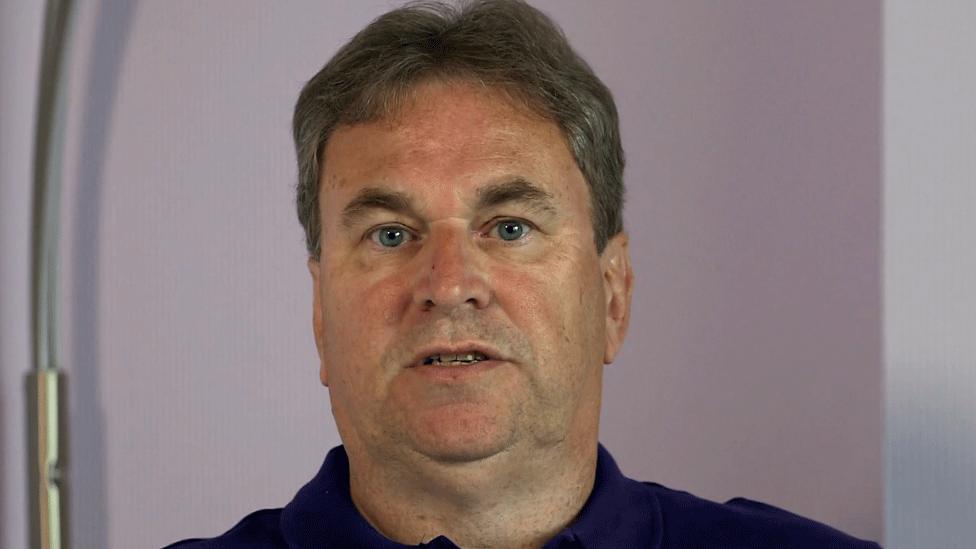
For Patrick Kelly any more surgery on his spine would be too risky
Patrick Kelly almost died after his spine operation by Mr Eljamel in 2007, but he had known there were risks.
What he did not realise until many years later, after asking for his medical records, was that Mr Eljamel had not actually done the intended surgery.
Mr Kelly, who is in constant pain and faces the risk of paralysis, said: "The people who have looked at my case, the medical professionals have said in no uncertain terms, that operation has not been carried out.
"That's blatant, and that's half the reason why I'm so angry about this."
He has been told that because of the scar tissue caused by the incision made by Mr Eljamel, he cannot have further surgery as the risks are too high.
The Report
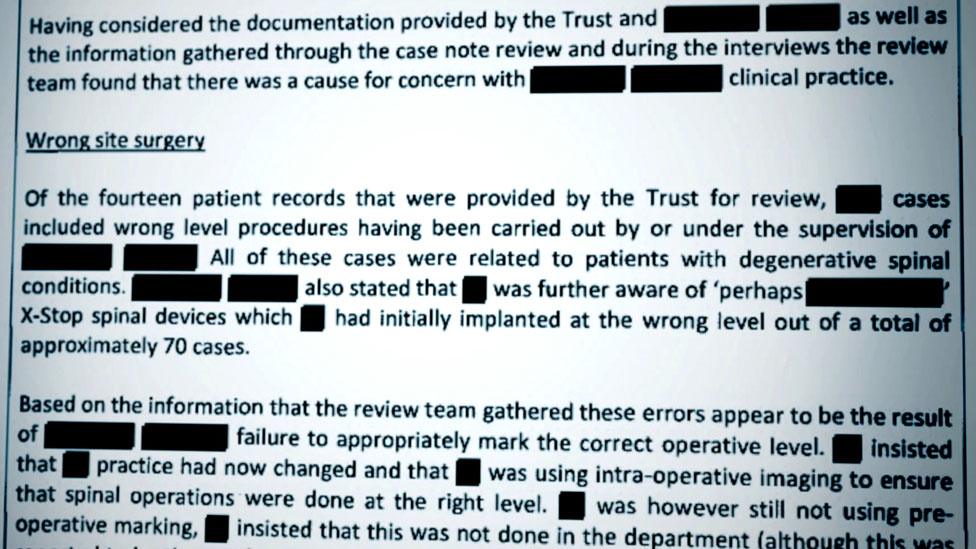
A redacted report on Sam Eljamel from the Royal College of Surgeons
In June 2013 NHS Tayside bosses say they became aware of concerns about Mr Eljamel for the first time.
They learned that he had operated on the wrong part of a number of patient's spines.
They say they acted "immediately" by placing him under supervision and undertaking an internal audit of his operations.
The board also asked the Royal College of Surgeons to investigate which they did, sending an interim report in October 2013 followed by a final one on 6 December.
That date is important because NHS Tayside told BBC Disclosure that it acted "immediately" to suspend Mr Eljamel and report him to the GMC.
And yet we know that the health board allowed him to operate on Ms Rose on 9 December - three days later.
She had expected to see him the next day to discuss her operation but said he had vanished.
The health board confirmed that he was suspended on 10 December.
When we originally asked for the report through a Freedom of Information request NHS Tayside said it could not confirm if it even existed.
Months later, after repeated requests, they agreed to let us see the conclusions and recommendations.
The Royal College's own guidelines said the learning from such reports should be published for patients and practitioners to see.
The report talks about;
a surgeon who failed to supervise his trainees
who regularly got his juniors to do his operations for him, and who "rushed" through surgery
Mr Eljamel often being difficult to get hold of because he was busy doing private work
some of his colleagues complaining he had "bullied" them
taking on too many cases, and there were examples given where he was "unwilling to scrub up to join in [surgery]".
and questioning how the health board managed oversight of Mr Eljamel.

Timeline of the surgeon's last months at NHS Tayside
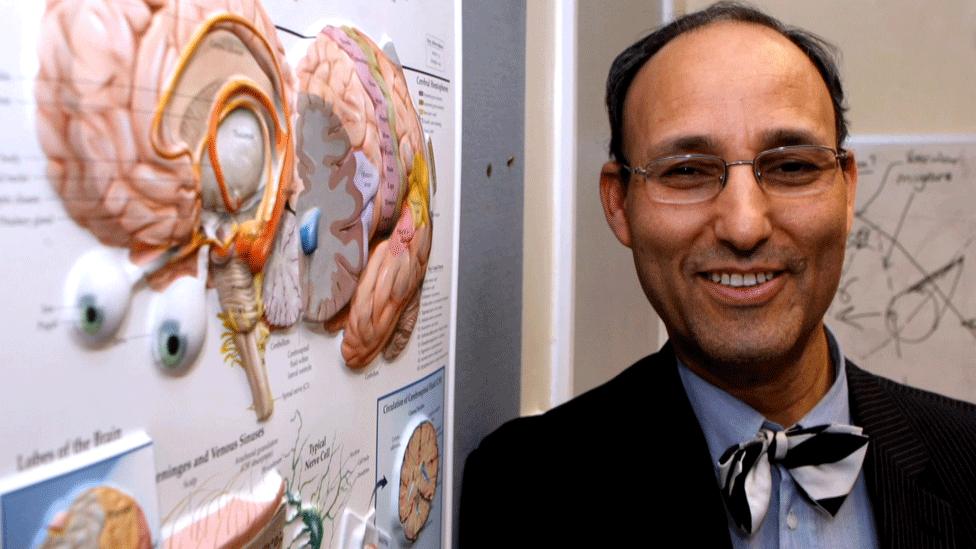
June 2013 - Sam Eljamel is put under investigation and under supervision
August 2013 - Mr Eljamel operates on Jules Rose's tumour
October 2013 - Royal College of Surgeons interim report on Sam Eljamel
6 December 2013 - Royal College of Surgeons final report on Sam Eljamel
9 December 2013 - A second procedure by Mr Eljamel is undertaken on Ms Rose
10 December 2013 - Mr Eljamel is suspended
May 2014 - Mr Eljamel retires from NHS Tayside

Fears of intimidation
It is hard to understand how no-one noticed that a brain and spinal surgeon was repeatedly making mistakes and harming patients.
Documents obtained by BBC Disclosure through Freedom of Information requests revealed that the health board did not have effective systems in place to pick up on recurrent mistakes prior to 2013.
The document obtained through FOI said prior to 2013, concerns were discussed in committees but "it was difficult to pick up emerging themes".
And the Royal College's report says that although Mr Eljamel's colleagues had concerns about his practices for some time they did not speak up because he was "intimidating".
Expert reviews patient records
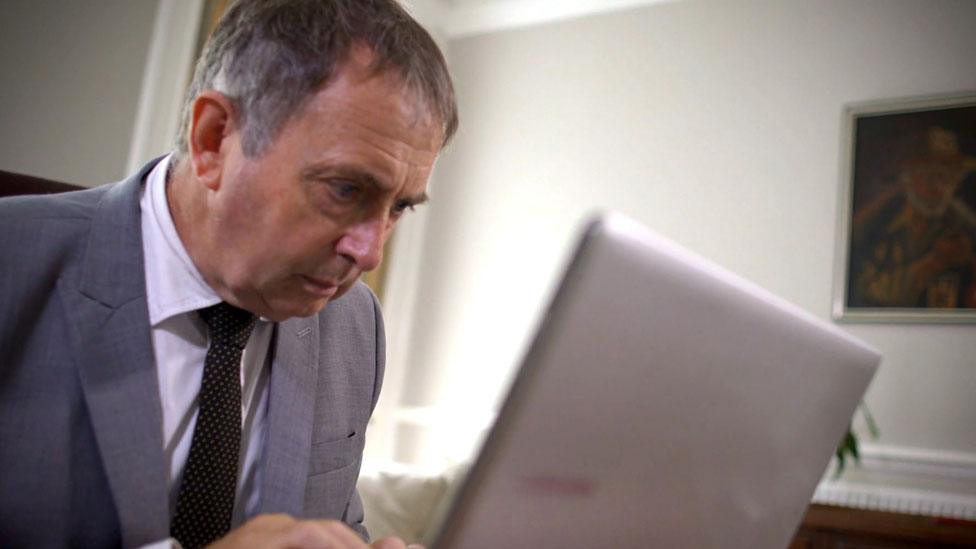
Court medical witness Donald Campbell looked at the medical records of four patients operated on by Sam Eljamel
Donald Campbell has been a consultant neurosurgeon for more than 30 years and is an expert witness in court.
With their permission, we showed him the scans and medical records of a number of Mr Eljamel's patients.
He said in two cases - including that of Patrick Kelly - the intended operation on the spinal discs - was not done.
In relation to Mr Eljamel telling Ms Rose he had removed her tumour during her first operation, he said: "I think it's dishonest.
"Apart from anything else, if you ever make a mistake, the first thing you should do is go to the patient, say 'I got it wrong'."
Overall, looking at the medical records of the four patients we share with him, he said: "I don't think his behaviour was acceptable or ethical.
"I feel very sorry for the patients and I feel that a lot of what I have been shown was potentially avoidable had action been taken at an earlier stage to give greater guidance to the individual or give him further training."
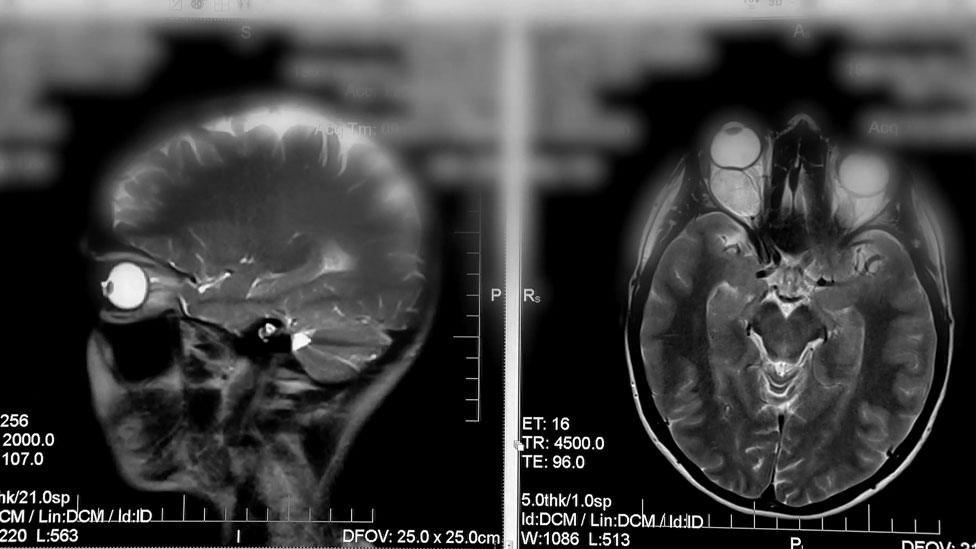
Jules Rose suffered from a brain tumour and was operated on twice by Sam Eljamel
Donald Campbell says it is standard practice across the UK - and has been for decades- to use X-rays during spinal surgery to ensure the right part is operated on.
But documents obtained by the BBC Scotland Disclosure team reveal that not only was Mr Eljamel not using X-rays but he was training his junior surgeons to do the same.
One of the documents describes how a junior surgeon carried out surgery at the "incorrect spinal level" while "under instruction" from Mr Eljamel.
Despite the trainee surgeon clearly raising concerns, he said Mr Eljamel advised him the "site was correct" - and told him to carry on with the operation.
The patient ended up with irreversible spinal damage.
Dozens of former patients are suing NHS Tayside, claiming Mr Eljamel has harmed them.
Several have already secured compensation.
'Many surgical errors'
Eilish Lindsay of Thompsons solicitors represents a number of patients.
She said: "It's very concerning that someone can be allowed to operate within an NHS facility for that period of time, with complaints arising, with concerns arising, where there's been no checks apparently done and no follow-up done.
"Our clients have been reporting issues for a number of years before any of this came to light, which is obviously very concerning for them, and nobody else appears to have questioned any of his decisions at that stage."
Some patients are suing Mr Eljamel personally because he treated them privately.
Sue Grant, head of clinical negligence at Digby Brown, said: "Highly, highly unusual for such a prominent and established surgeon to make so many surgical errors. This is not just a case of a bad day at the office."
Many of his former patients cannot sue because they did not take cases within the three-year time limit.
"For some of them, the damage may be irreversible," she said.
"The difficulty is that we really don't know. For those whose cases are time barred, they often don't have the benefit of any sort of investigation, any independent review, so they're left wondering and worrying if they might have been victims without ever knowing they were or not, and they will always have that doubt in their minds."
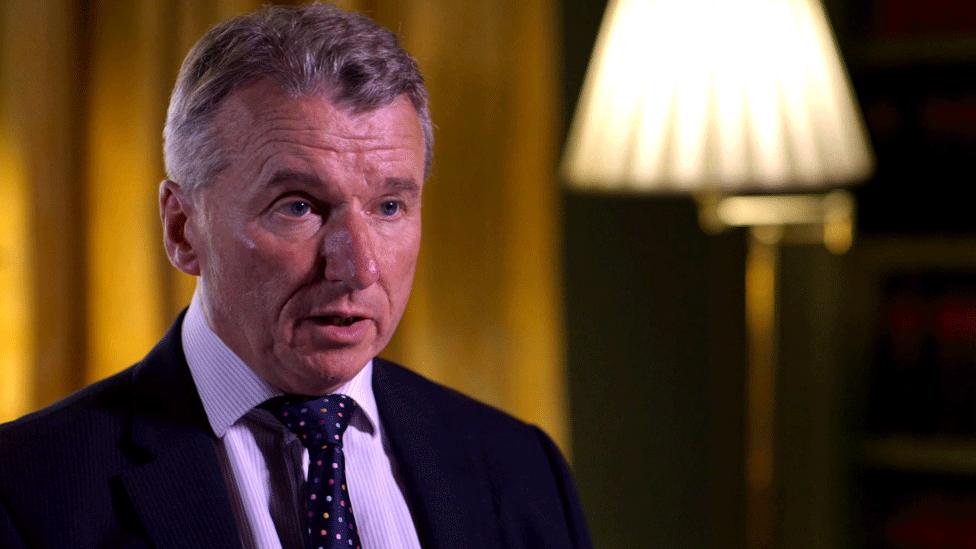
Brian McConnachie QC said: "To remove effectively the wrong part of the body seems on the face of it to be certainly negligent, and probably reckless"
We took the medical records of a number of patients to Brian McConnachie QC, former head of high court prosecutions at the Crown Office.
He believes there is potentially a case for prosecuting Mr Eljamel.
Mr McConnachie said: "Of the ones I have seen there are, I think, three of them where there would be an arguable case for culpable and reckless conduct."
In Ms Rose's case, he said: "To remove effectively the wrong part of the body seems on the face of it to be certainly negligent, and probably reckless."
He adds: "Standing the fact we're dealing with a surgeon carrying out this kind of work and potentially damaging people's lives forever, then in my view it would be appropriate, certainly, to consider the question of a criminal prosecution."
What happens next?
So what have the repercussions been for Mr Eljamel?
He was allowed to retire from NHS Tayside in May 2014 and to remove himself from the UK medical register.
It means: no further investigation, no sanction and no disciplinary action by the General Medical Council.
The GMC told BBC Disclosure that its priority was "to protect patients". Not to "punish doctors".
NHS Tayside's medical director, Prof Andrew Russell, said: "We have heard from a number of patients from 2012 to 2016 who have had concerns and we have ensured we have listened to their complaints and taken appropriate action to support patients as per our duty of care.
"There has been much learning by the organisation immediately following these events and many improvements have been made over the past five years.
"I would like to reassure our patients that NHS Tayside complies with all national standards relating to spinal surgery, with patient safety front and centre of every procedure carried out."
Some patients want the Scottish government to instigate a public inquiry.
Ms Rose said: "He needs to be held to account for what he's done; and NHS Tayside because they've allowed this as well."
Mr Kelly said: "We must really find out, we've got to get to the bottom of this if we're going to have any faith in the system.
"Because, at the moment, the system is badly, badly broken, that you can walk into an operating theatre, create absolute havoc, and walk away. I mean, what message does that send out?"
If you want to speak to BBC Scotland Disclosure about this investigation, or another story, email programme producer liam.mcdougall@bbc.co.uk or reporter lucy.adams03@bbc.co.uk. You can also follow and get in contact with the team on Twitter @BBCDislosure, external. And remember, you can watch the Disclosure programme on demand on BBC iPlayer.
